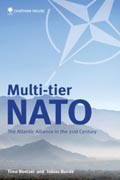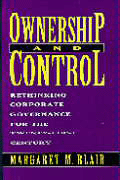


Book
Throughout the past sixty years NATO, the world’s most powerful military alliance, has been a remarkable success story. Today, however, there appears to be a widening rift among the member countries as NATO struggles to redefine its purpose and strategic identity. Is NATO still primarily a transatlantic alliance for collective defense or has it become an organization of democratic states that acts wherever it deems necessary to assert its values and ideas of a liberal world order? As NATO increasingly struggles to reach consensus on a whole range of strategic issues, it appears to be on a path to disintegration and, ultimately, failure.
This book argues that NATO has developed into a fluid “multi-tier” alliance that is divided on many issues. Members generally fall into one of three tiers:
Based on an examination of national security strategies and policy statements of NATO state representatives, this book sheds light on the specific characteristics, security cultures, and strategic worldviews in each tier.
While the evolution of such a multi-tier alliance will not inevitably result in NATO’s demise, this manifestation of camps—if unmanaged—will continuously disrupt the organization’s strategic agility and weaken the prospects for collective action. Multi-Tier NATO finds that if NATO is to maintain strategic vitality, it needs to develop institutional mechanisms of “variable geometry”—that is, not every country needs to take part in every policy, but some can cooperate more closely within a common institutional framework.
Related Books

Tom Loveless
October 1, 2006

Margaret M. Blair
June 1, 1995
Margaret M. Blair
April 1, 1996